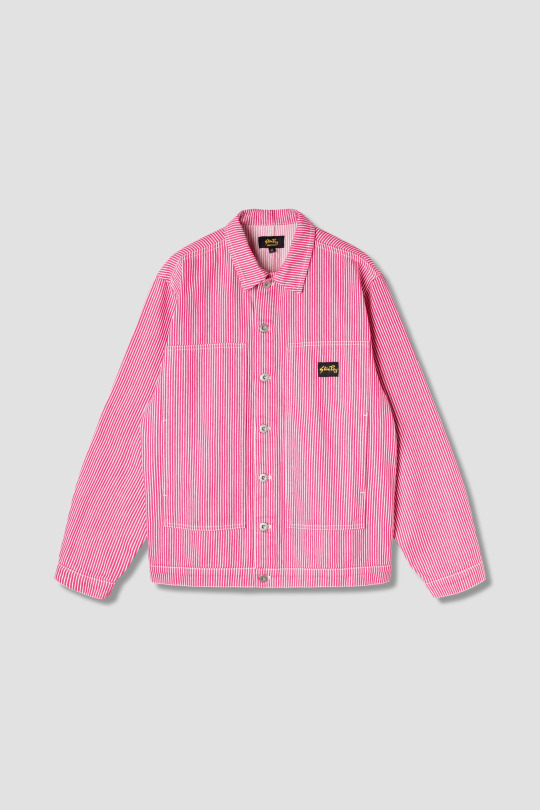#hickory stripes
Explore tagged Tumblr posts
Text

internet find
If you want this project to continue, you can use the Paypal donation button on the web page of the blog. Any donation is welcome.
#overalls#dungarees#shirtless#hat#overalls friends#hickory#hickory stripes#hickory striped overalls#cool#cool look#hot#hot guy#cute#cute guy#beard#baggy#baggy overalls#dickies#dickies overalls#faded#faded overalls
21 notes
·
View notes
Text


Two "old school" Nebraska convict mugshots.
These two killers have sequential numbers, 7298 and 7299 on Nebraska's death row. They went to the chair in number order and were criminal partners.
The head shaves came right before they walked the last mile. But the matching hickory striped shirts, buttoned at the collar are exceptional!
23 notes
·
View notes
Text

Sunday cigar. Kristoff Shade Grown Churchill.
8 notes
·
View notes
Text






Clutch #3516 - Gallathea/Gowan
Mated On: 2024-03-07 # of eggs: 3 Hatched On: 2024-03-13
Progeny:
Hatchling 9358 - Sandsurge Female, Slate Wrought/Pear Stripes/Metals Branches, Common - 15,000 on 2024-05-12
Hatchling 9359 (Grandmother) - Sandsurge Female, Auburn Wrought/Radioactive Stripes/Hickory Branches, Common - 15,000 on 2024-04-09
Hatchling 9360 (Jinan) - Sandsurge Male, Driftwood Wrought/Fern Stripes/Copper Branches, Uncommon - 15 gems on 2024-03-21
Comments:

#Clutches#Gallathea Dragon#Gowan Dragon#Hatchling#Sandsurge Female#Sandsurge Male#Sandsurge Breed#Sandsurge Hatchling#Wrought#Stripes#Branches#Slate#Pear#Metals#Auburn#Radioactive#Hickory#Driftwood#Fern#Copper#Common#Uncommon
3 notes
·
View notes
Text

Rockin’ Zace railroad striped engineer overalls!
#zace overalls#engineer overalls#railroadbibs#hickory striped overalls#striped overalls#working in overalls#bibjeans#dungarees#overalls#denimoveralls#overalls obsession#sexyinbibs#babes in bibs#overalls are hot#hot in overalls#sexy ass in bibs#bad ass babe in bibs!#bad ass babe in bibs#sexy in overalls#overalls are for adults#overalls are sexy#overalls are cool#denim overalls#overalls ambassador#bib overalls
13 notes
·
View notes
Photo

Levi’s and Nigo have announced the launch of their latest collaboration, launching April 6th, 2023. The upcoming collection will be the third installment following previous archival reproduction and Human Made releases over the past two years.
2023 marks the 150th anniversary of the Levi’s 501 jean, one of the most enduring icons of style across the globe. To commemorate this historic milestone, Levi’s has collaborated with Japanese designer, disc jockey, and producer Nigo (Founder of BAPE and artistic director of Kenzo) to create a collection inspired by his favorite personal archive piece, the Hickory Stripe 501 jeans.
A pioneer of Japanese streetwear and denim aficionado, Nigo has spent decades sourcing rare vintage Levi’s and has accumulated one of the most expansive personal collections in the world. For Spring/Summer 2023, Levi’s has worked with Nigo to create a one-of-a collection inspired by the past & recreated for the present.
The two-piece collection features a pair of Hickory Stripe 501 jeans (retailing for $350) and a 557XX Hickory Stripe Trucker Jacket ($260). Both pieces were Made in Japan utilizing traditional manufacturing techniques. The 501 is crafted with 13 oz, Shrink-to-Fit Hickory Stripe selvage denim — specially developed for this collection — and includes classic details like the Levi’s Red Tab, signature button shanks, Two-Horse Pull back patch, and stitched arcuate on the back pockets. It comes in a vintage wash with specific threads and shanks to match the archival reference piece.
The 557XX Trucker Jacket is also crafted with 13 oz Hickory Stripe selvage denim and comes pre-shrunk with specific threads, sundries, and a vintage wash to match the 501. Every piece from the collection comes with a special edition Levi’s x Nigo 150th anniversary tote bag and co-branded hangtag.
The new Levi’s x Nigo collection is presented alongside a short campaign film, shot on location in Nigo’s hometown. Personifying the theme “The Future is in the Past,” the video portrays a young Nigo styled in the collection, exploring many of the formative locations and activities from his childhood in a go-kart.
“As a concept, ‘The Future is in the Past’ means looking at the past to create for the future. I found the original Hickory Stripe 501 at a vintage store in 1995 and haven’t seen it reproduced since then. Using the past as my reference book, I am honored to bring this archival 501 back during the 150th anniversary,” says Nigo.
The Levi’s x Nigo collection launches worldwide on April 6th, 2023, and will be available for purchase on Levi.com, the Levi’s App, select Levi’s Stores, and humanmade.
#Levi’s x Nigo collection#Levi’s Hickory Stripe 501 jeans#streetwear blogging#streetwear collaborations#usa workwear brands#nigo human made#oriental streetwear brands#Japanese streetwear brands
4 notes
·
View notes
Text
Lot 3091 S/S OPEN COLLAR SHIRTS ヒッコリーストライプ
こんにちは 名古屋店 コジャです。
WAREHOUSEのオープンカラーシャツ。 本日はこちらです。
WAREHOUSE & CO. Lot 3091 S/S OPEN COLLAR SHIRTS ヒッコリーストライプ \17.050-(with tax) ※ONE WASHは¥550- UP

仕様などは変わらないので前回のシャンブレーのBLOGをご参考下さいね。
【Lot 3091 S/S OPEN COLLAR SHIRTS シャンブレー】 https://www.tumblr.com/warehouse-staff-blog/723761178303709184/lot-3091-ss-open-collar-shirts-2023-ss?source=share
柄シャツをお探しの方、ヒッコリーストライプなんて如何でしょうか?
白糸とインディゴ糸による「色なき」も楽しめますよ。

173cm,60kg SIZE:42(ONE WASH)

シャンブレーとはまた異なる爽やかさ。 是非お試し下さい。では失礼致します。
----------------------------------------------------------------------
☞ [営業時間のお知らせ]
平素よりウエアハウス直営店をご利用頂き有難う御座います。 ウエアハウス直営店では営業を下記の通り変更しております。
《2023.8.6.現在の営業時間》
◎東京店 【営業時間:平日 12時~19時 土日祝 12時~19時】無休 ◎阪急メンズ東京店 【営業時間:平日 12時~20時 土日祝 11時~20時】無休 ◎名古屋店【営業時間: 平日 12時~19時 土日祝 12時~19時】水曜定休 ◎大阪店 【営業時間: 平日 12時~19時 土日祝 12時~19時】 無休 ◎福岡店 【営業時間: 平日 12時~19時 土日祝 12時~19時】 無休 ◎札幌店 【営業時間: 11時~20時】 木曜定休
今後の営業時間等の変更につきましては、 改めて当ブログにてお知らせ致します。 お客様におかれましてはご不便をお掛けいたしますが、 ご理解の程、宜しくお願い申し上げます。
.
☞ 『WAREHOUSE直営店の LINE公式アカウント開設』
WAREHOUSE&CO.直営店からのお得な情報や、エリア限定のクーポンなどを配布しています。
LINE公式アカウント開設にあたり、 2019年3月26日(火)以降、提供しておりましたスマートフォンアプリはご利用できなくなっております。 お手数をおかけしますが、今後はLINEアカウントのご利用をお願いします。
ご利用されるエリアのアカウントを「友だち登録」して下さい。 ※WAREHOUSE名古屋店をご利用頂いているお客様は【WAREHOUSE EAST】をご登録下さい。
※直営店のご利用がなければ【WESTエリア】をご登録下さい。
.
☞[リペアに関して]
弊社直営店で行っておりますジーンズ等のリペアの受付を休止させて頂いております。 ※ご郵送に関しても同様に休止させて頂いております。再開の日程は未定です。
ご迷惑お掛け致しますが、ご理解下さいます様お願い致します。 ※弊社製品であればボトムスの裾上げは無料にてお受けしております。お預かり期間は各店舗により異なりますのでお問合せ下さい。
.
☞WAREHOUSE公式インスタグラム
☞WAREHOUSE経年変化研究室
☞“Warehousestaff”でTwitterもしております。
ーーーーーーーーーーーーーーーーーーーーーーーーーーーーーーー
WAREHOUSE名古屋店
〒460-0011 愛知県名古屋市中区大須3-13-18
TEL:052-261-7889
《2023.8.6.現在の営業時間》
【営業時間:平日 12時~19時、土日祝 12時~19時】水曜定休
#ウエアハウス#ウエアハウス名古屋店#warehosue#warehouseco#warehousecompany#warehouse名古屋店#warehousenagoya#amekaji#ametora#americancasual#americantrad#3091#open collar shirts#hickory stripe#stripe#オープンカラーシャツ#ストライプシャツ#ヒッコリーストライプ#シャツ#shirts#オープンカラー#open collar#mensfashion#mens fashion#fashion#mens style#mens wear#mens snap#mens clothing
0 notes
Text

Snapper Female
Hickory / Mulberry / Cyan , Fern / Stripes / Points
Light Whatever
#flight rising#flight rising dragon#flight rising scry#scrying workshop#fr scries#fr snapper#flight rising snapper#hickory mulberry cyan#fern primary#stripes secondary#points tertiary
1 note
·
View note
Photo

New York Eclectic Dining Room An illustration of a mid-sized eclectic enclosed dining room design with beige walls and medium-toned wood flooring.
#hickory chair#gold chandelier#upholstered dining chair#mixed fabric upholstery#large chandelier#striped rug
0 notes
Text

#wildclaw#male#dragon#fern#abyss primary#stripes#marigold secondary#veined#hickory tertiary#lightning#swirl eyes
0 notes
Text

Number (N)ine: 'standards' a/w 2001
The theme of this collection was "Standards," with John Lennon's "LOVE" playing in the background. Basic items such as leather blousons, hickory-striped pants, and diamond-patterned shirts were layered in street style. Patched jeans, holed T-shirts, and items finished to look like scratches, like the models walking with their heads down and tears in their eyes, seem to symbolize lonely young people with emotional wounds.
215 notes
·
View notes
Text


I am a huge fan of hickory striped prison shirts. They were made in prison factories by the convicts and were almost always imperfect.
Of course, a rugged convict and a stenciled prison number definitely contribute to the overall impact!
I have one treasured hickory shirt in my collection.




Hickory Striped Prison Shirt
23 notes
·
View notes
Text
Moth of the Week
Banded Tussock Moth
Halysidota tessellaris

[Right | Left]
The banded tussock moth is a part of the family Erebidae, the tiger moth family. It was first described in 1797 by James Edward Smith. This species is also called the pale tiger moth, banded tussock moth, and tessellated halisidota. The common name “banded tussock” moth comes from the clumps of longer hairs that protrude amid the shorter ones on the caterpillars, called “tussocks.” The scientific name “tessellaris” refers to a tessellated pattern, or a pattern made of small stones similar to the pattern on this moth’s forewings.
Description This species has light brown, tan, or cream wings and upper body. The abdomen is a yellow-orange. The forewings have a pattern of beige bands with thin black outlines while the hindwings are blank. On the back of the thorax are two orange stripes with a teal stripe on either side. Adult males and females are identical in color and pattern.
Wingspan: 3.81 - 5.08 cm (1.5 - 2 in)
The caterpillars are covered in long hair that ranges from yellow-orange to dark gray. At the head and bottom of the caterpillars are especially long clumps of white, black, or orange hairs.
Caterpillar length: 3.5 cm (≈1.38 in)
Diet and Habitat Larvae of this moth feed on some species of alder, ash, apple, beech, birch, blueberry, boxelder, chestnut, chokecherry, elm, grape, hackberry, hazel, hickory, oak, sycamore, walnut, and willow. They eat the leaf tissue between leaf veins.
This moth lives in North America and ranges from southern Canada to Texas and central Florida. They inhabit wooded areas with different types of deciduous trees. Adults may be seen by lights at night.
Mating In the north, this species is univoltine with one generation and year while in the south, it is multivoltine with two or more generations on the south. In Missouri, a two generation a year habitat, adult moths are seen from early May until the end of August. They presumably mate during this time. Eggs are laid in masses on the undersides of host plant leaves. Caterpillars overwinter in cocoons made from their own hair.
Predators This moth and its larvae are preyed on by birds, salamanders, toads, bats (Eptesicus fuscus), and 9 different parasitoid wasps (Braconidae).
Caterpillars of this moth are covered in long hairs that are thought to cause stinging and rashes like other similar species. The larvae behave as if they are chemically protected, but they have not been tested for alkaloids according to Wikipedia. Adults are confirmed to have and use alkaloids like other moths in the Erebidae family. They gain these toxins from their diet as caterpillars which makes them unpalatable to predators.
Fun Fact Although some moths in the subfamily Arctiinae are called “tussock moths,” there is a different subfamily (Lymantriinae) also in the Erebidae that are called the “true tussock moths.” Lymantriinae moths used to be in their own family but are now grouped together with other subfamilies under the family Erebidae.
Adult banded tussock moths are visually very similar to adult sycamore tussock moths (Halysidota harrisii). Scientists even need to dissect the two in order to tell the difference.
(Source: Wikipedia, UMassAmherst, MarylandBiodiversityProject, MISSOURI DEPARTMENT OF CONSERVATION, BugGuide)
#libraryofmoths#animals#bugs#facts#insects#moth#lepidoptera#mothoftheweek#erebidae#Halysidota tessellaris#banded tussock moth#pale tiger moth#tessellated halisidota#tw bugs
25 notes
·
View notes
Text






Clutch #3686 - Enkeh/Ankah
Mated On: 2024-08-27 # of eggs: 3 Hatched On: 2024-09-01
Progeny:
Hatchling 9797 (Aydan) - Obelisk Female, Caramel Ripple/Seafoam Safari/Driftwood Firebreather, Common - 15 gems on 2024-10-03
Hatchling 9798 (Gwynfryn) - Fathom Female, Clay Jupiter/Algae Stripes/Stone Scales, Common - 15 gems on 2024-09-25
Hatchling 9799 (Shiho) - Fathom Female, Hickory Jupiter/Green Safari/Slate Firebreather, Uncommon - 15,000 on 2024-10-04
Comments:

#Clutches#Enkeh Dragon#Ankeh Dragon#Hatchling#Obelisk Female#Fathom Female#Obelisk Breed#Fathom Breed#Ripple#Jupiter#Safari#Stripes#Firebreather#Scales#Caramel#Seafoam#Driftwood#Clay#Algae#Stone#Hickory#Green#Slate#Common#Uncommon
1 note
·
View note
Text



Babe in her engineer striped baggy bibs!
#wrangler overalls#wrangler#engineer overalls#striped overalls#hickory striped overalls#bibjeans#dungarees#overalls#baggy bibs#denimoveralls#overalls obsession#sexyinbibs#babes in bibs#overalls are hot#hot in overalls#bad ass babe in bibs!#sexy ass in bibs#bad ass babe in bibs#sexy in overalls#overalls are sexy#overalls are cool#overalls are for adults#model in overalls#bib overalls
12 notes
·
View notes
Photo


STAN RAY CACTUS FLOWER
a bright, warm pink that has a very slight coral undertone, inspired by the vibrant, brightly-coloured flowers that bloom on cacti.
Ready for longer days and shorter nights, you’ll find Cactus Flower in all areas across our SS23 collection; from solid colour shorts and tees, to Hickory striped pants and even mingling with Dusk and Agave on our Hickory Mix series.
#stan ray pants#hickory stripe pants#stan ray hickory stripe pants#hickory mix pants#streetwear blogging#fashion blogging#usa workwear brands
0 notes